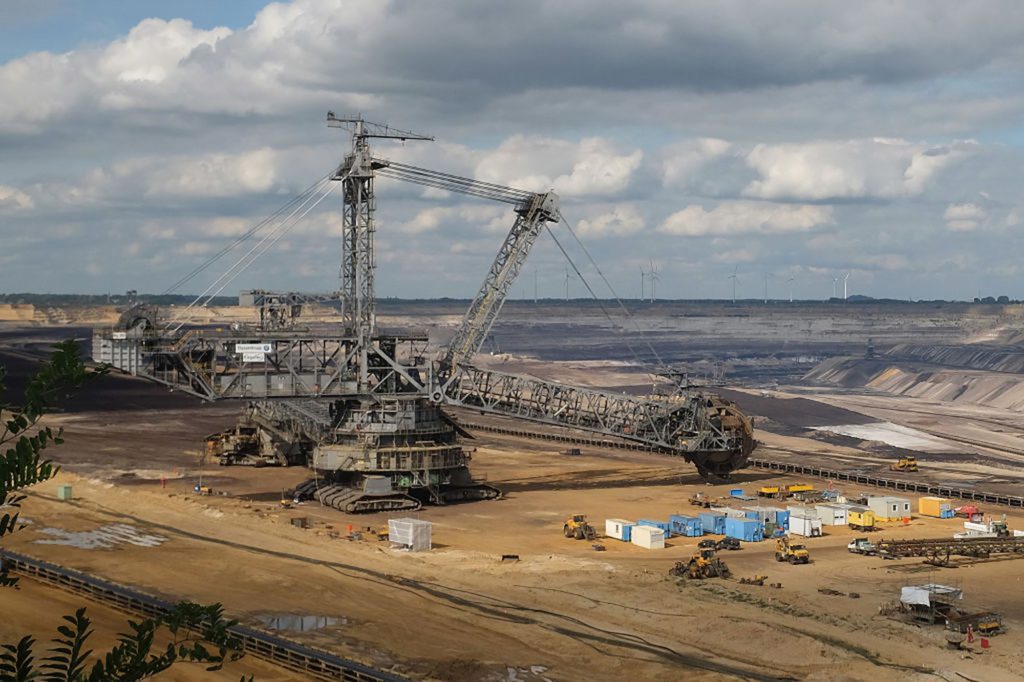(Bloomberg) — Germany’s clean-energy leanings will be tested as Europe’s largest economy starts facing the bill, and an initial reckoning could come as soon as this winter.
A rebound in demand and tight supplies have driven power, gas and carbon prices in Europe to a string of records. Wholesale gas doubled in the last three months, power jumped more than 60%, while oil rose about 10%. The combination has helped boost inflation in the euro area and is due to hit consumers in the coming months as prices get passed on.
Yet ahead of Sunday’s election to determine Chancellor Angela Merkel’s successor, the turmoil has barely caused a blip in campaign rhetoric, despite Germany already burdened with the highest electricity prices in Europe.
In a debate between the three candidates over the weekend, there was widespread agreement that the country needs to accelerate its expansion of renewable power. The biggest dissent was over the pace of the transition and how to share the burden.
That could change in the coming months if the energy crunch squeezes businesses and makes it tough for some Germans to afford heating, posing a challenge just as the new government gets up and running.
“It could become dangerous politically,” said Hanns Koenig, head of the Berlin office for Aurora Energy Research.
Germany’s Social Democrats are leading in the polls and have voiced a strong preference to form an alliance with the Greens, which want solar panels on every new roof and 2% of land set aside for wind power. While the parties will probably need a third partner, they’re unlikely to compromise on the environment.
“We need more tempo” on climate protection, Olaf Scholz — the Social Democratic candidate who’s the front-runner to succeed Merkel — said during the debate on Sunday, calling clean electricity the most important resource for the future.
That long-term vision could cause pain in the short term, with the energy squeeze set to make Germany’s high prices even worse. The country has committed to phase out coal power, just as its last nuclear plants are being shut down.
That means more natural gas will be needed to bridge the gap, while power grids are upgraded to handle volatile swings in renewable generation when the sun doesn’t shine and the wind doesn’t blow. Adding to the strain is the fact that demand is set to surge as Germany replaces combustion-powered cars with electric vehicles.
For business people like Dieter Mannheim, the disruption could prove too much to handle. Operations at his family-owned company — Kärlicher Ton- und Schamottewerke Mannheim & Co. KG, which refines and prepares high-grade clays for chemicals, building materials and other industries — are energy intensive.
Clay pits near the Rhine river need diesel-powered excavators, wheel loaders and bulldozers. Refining plants use natural gas and electricity, as does a tunnel kiln, which fires clay at 1,200 degrees Celsius (2,200 degree Fahrenheit).
“The imprudence of politics consists above all in the fact that it punishes us for using the only available energy without offering us an alternative,” he said. Pointing to growing competition from Egypt, he added that “it’s foreseeable that this business will leave Germany.”
The costs of the energy transition could also disproportionately hit poorer Germans, a key constituency for the SPD, which is already burdened by rising rents and fallout from the coronavirus pandemic. Around 2.1 million Germans have been pushed into a precarious economic situation, according to a study by the Humboldt University in Berlin.
While energy poverty — defined as an inability to heat one’s home or use basic appliances like lighting — is lower in Germany than in other European countries, there’s still around 2 million people who can’t afford adequate heating, according to the country’s federal statistics office.
Inflation in Germany jumped in August to the highest level since 2008, mostly driven by energy prices, with gasoline spiking due to summer travel. Germans paid 25% more to refuel their cars than last year, and if the trend continues, it could intensify the sense that government policy has gone awry.
“Gasoline prices are symbolic, and voters are typically very sensitive to it,” Stefan Kooths, director of business cycle and growth at the Kiel Institute for the World Economy, an economic think tank in Germany.
Aside from broader market trends, a national surcharge on transport and heating took effect in January to nudge consumers to buy battery-powered cars and electric heat pumps.
To ease the burden, Merkel’s government has floated the prospect of an intervention, with Transport Minister Andreas Scheuer earlier this month proposing a price break if gasoline and diesel exceed 2 euros a liter. Armin Laschet, the candidate from Merkel’s conservative bloc, rejected the plan but said reducing fuel taxes could help soften the blow.
Despite all the tension, Germans are staunch supporters of climate protection with more than 80% of voters saying more needs to be done. And the new government could use the looming crisis as an opportunity to accelerate the country’s energy transition.
“This election is about setting the agenda and no longer accepting half measures on climate protection,” Annalena Baerbock, the Greens candidate, said during the debate. “The next German government needs to be a climate government.”
More stories like this are available on bloomberg.com
©2021 Bloomberg L.P.











